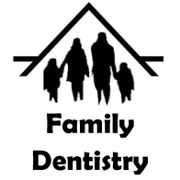
Babies have 20 primary teeth that gradually come in starting around 6 months of age. These fall out—also gradually—throughout childhood to make way for permanent incisors, canines, and molars. Here's a closer look at when baby teeth are shed and what dentists suggest doing when it happens.
When to Expect Kids to Lose Primary Teeth
Central and lateral incisors, or the front four teeth on the upper and lower sets, are the first to erupt, which typically occurs between 6 and 16 months. These are also the first teeth children shed, as they fall out at 6 or 7 years old.

First molars are the larger teeth located behind the canines, which are the pointed teeth toward the front of the mouth. Babies usually develop first molars on top and bottom sets at 13 to 19 months. These teeth are often next to be replaced, which happens around the age of 9 to 11 years. Second molars, located behind the first molars, emerge at 23 to 33 months and fall out when children reach 10 to 12 years of age.
Canines, which assist with tearing food while taking bites, erupt at approximately 16 to 23 months. These teeth fall out between the ages of 9 to 12 before permanent canines take their place.
What to Do When They Fall Out
Immediately after your child loses a tooth, use sterile gauze to gently wipe the gums to stop any bleeding. Family dentistry practitioners also recommend having your young one rinse their mouth with warm salt water to clean out any bacteria from the empty socket.
If your child experiences pain following the shedding of a tooth, you may apply an over-the-counter topical anesthetic to the affected area. This can numb the gums to prevent discomfort until soft tissues heal. If you notice any swelling, typically caused by wiggling the tooth before it falls out, you may give your child pediatric ibuprofen to minimize inflammation.
A permanent tooth typically emerges within six months of your child losing its primary counterpart. During this time, it's important to maintain good oral hygiene, as this can prevent gums from becoming infected while lowering the risk of tooth decay and cavities. Dentists recommend brushing twice and flossing once daily to remove plaque and bacteria from the mouth.
If you need a reliable dentist for the whole family, turn to Family Dentistry Associates of Monona, Dental Associates of Prairie du Chien, P.C., and Waukon Dental. They assist families with a range of treatments and procedures, including cosmetic dentistry, teeth whitening, and oral exams, at three convenient locations. Visit Dental Associates of Prairie du Chien, P.C., Family Dentistry Associates of Monona, and Waukon Dental online today.
About the Business
Have a question? Ask the experts!
Send your question

